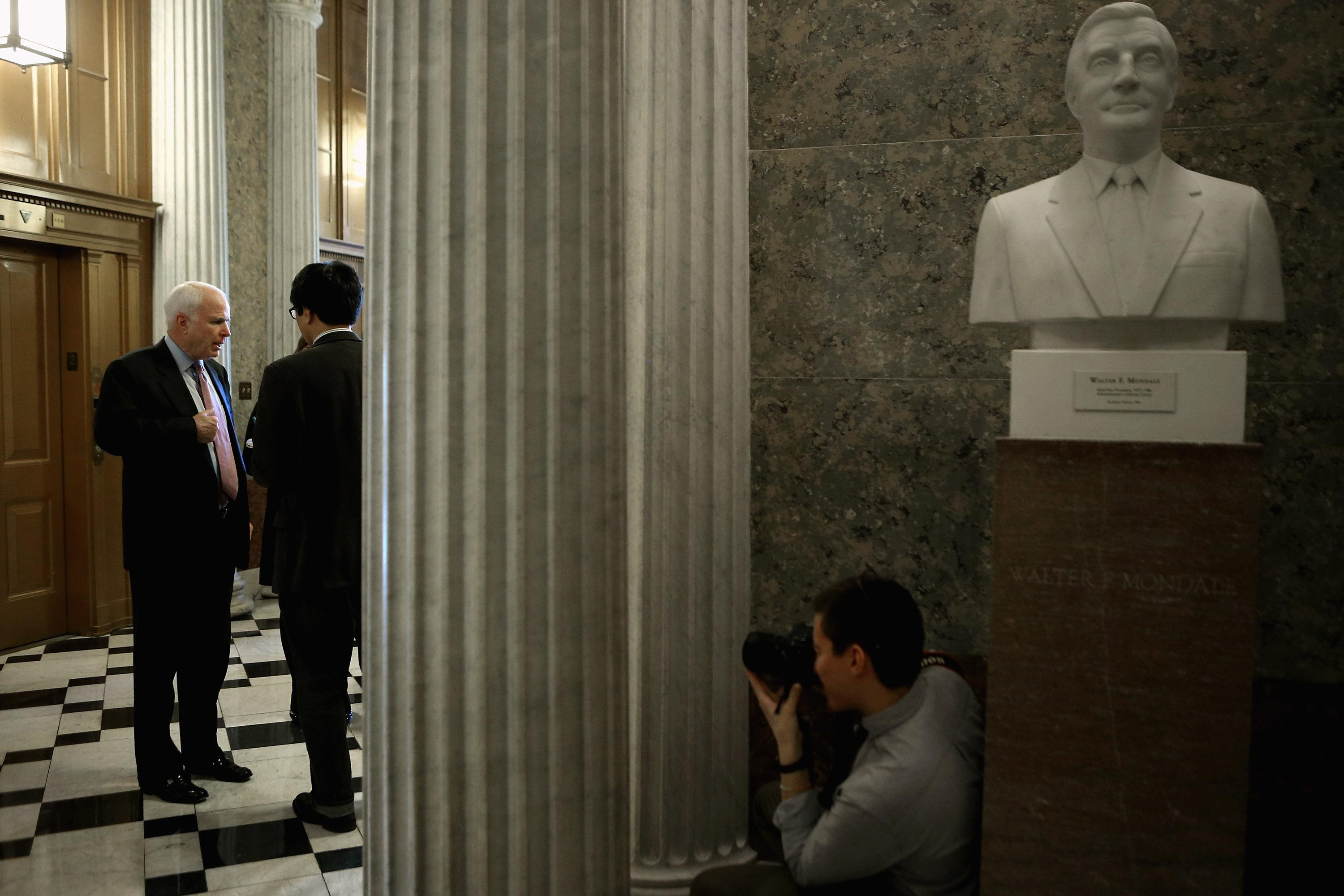Democrats are bristling over what Sen. John McCain told Fox News yesterday, most of which he also thought important enough to say on the floor of the Senate.
To be honest with you, Neil [Cavuto], it goes back to there’s a lot of ill will towards Sen. Hagel because when he was a Republican [sic], he attacked President Bush mercilessly and say he was the worst president since Herbert Hoover and said the surge was the worst blunder since the Vietnam War, which was nonsense. He was anti-his own party and people. People don’t forget that. You can disagree but if you’re disagreeable, people don’t forget that.
My “sic” is there because Hagel is still a Republican, but the whole graf is kind of a “sic.” McCain, who has an outsized role in the media, was all over the damn place during the Hagel drama.
On January 31, Washingtonians trained their cold eyes on McCain as the guy who could make or break the nomination in hearings. McCain battered Hagel over his opposition to the surge—“Were you wrong? Yes or no? Yes or no?”—but that was pretty orthogonal to the issues that actually damaged Hagel.
On February 4, McCain defiantly told Politico that he would oppose a filibuster on Hagel. This kicked off a wave of well-informed speculation that Hagel basically had the votes to get through.
On February 6, McCain added his name to a letter, circulated by Sen. Ted Cruz, asking for the Armed Services Committee to hold off on a Hagel vote until the nominee delivered more speeches and financial records from 2008 onward.
Then, on February 10, McCain told Fox News that “we’ve never filibustered a Cabinet nominee and I don’t think we should start here.” Which made it sound like his vote would move Hagel through.
And then, this week, McCain started saying that he, Lindsey Graham, and Kelly Ayotte needed more answers on Benghazi—a detailed account of the president’s actions that night—before they could back Hagel. Which is where he ended up, right before going on TV and suggesting that Republicans didn’t like Hagel and voted accordingly. Washington expected McCain’s vote to be pivotal, but the Hagel fight was the moment that Sen. Ted Cruz took over as the leader of the intellectual opposition.
